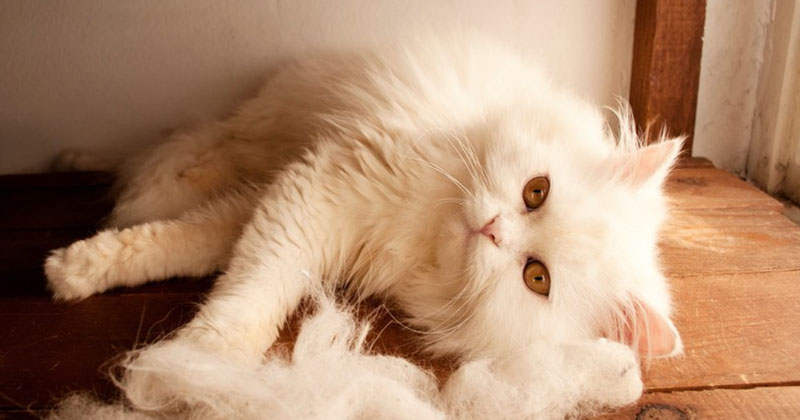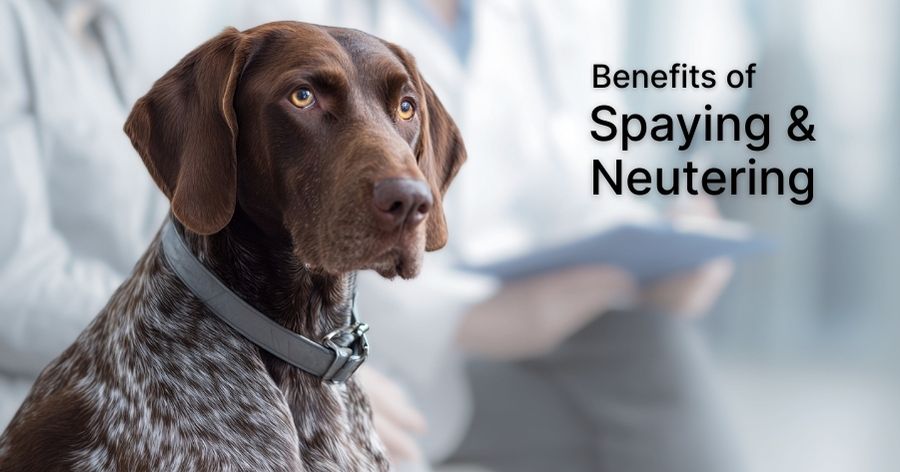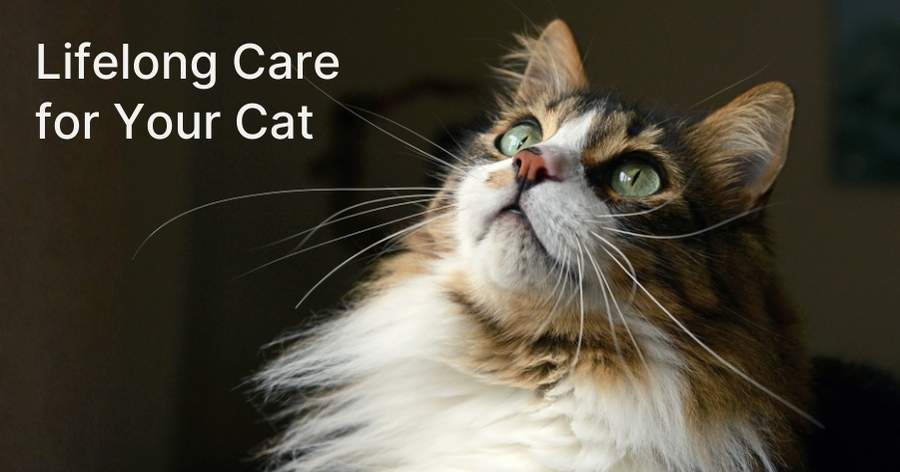
If you've noticed that your cat's hair is falling out, it can be a cause for concern. Cats typically take great pride in their grooming habits, and any changes in their coat's appearance can signal an underlying issue. While shedding is normal for most cats, excessive hair loss can indicate health concerns that need attention. At Cottner Creek Pet Clinic, we understand how much you care about your cat's well-being, and we're here to help you navigate this issue. In this article, we'll explore some of the most common reasons your cat's hair may be falling out, and what you should do if this problem persists.
Hair loss in cats, also known as alopecia, can be caused by several factors ranging from minor issues to more serious medical conditions. Understanding the underlying cause is key to determining the best course of action.
One of the most common reasons for hair loss in cats is allergies. Just like humans, cats can be allergic to various substances, including food, pollen, dust, and even certain cleaning products. When a cat has an allergic reaction, they may scratch excessively, leading to hair loss in patches. If you suspect that your cat's hair is falling out due to allergies, it’s essential to identify the source of the allergy and work with a veterinarian to find the right treatment plan.
Food allergies in cats can manifest as gastrointestinal issues, but they can also cause skin problems, including hair loss. Common culprits include proteins like chicken, beef, or dairy. If you’ve recently changed your cat’s diet, and their hair loss coincided with that change, it’s worth discussing a potential food allergy with your veterinarian.
Environmental allergies, such as pollen or mold, may cause your cat to develop itchy skin. Cats may groom themselves excessively to relieve the itch, resulting in hair loss. A vet can help you determine if an environmental factor is the cause and suggest treatments, which may include changes to your home environment.
Stress and anxiety are often overlooked but can be major contributors to hair loss in cats. Cats are sensitive creatures and changes in their environment, such as moving to a new home, a new pet, or even a change in routine, can cause stress. This stress can lead to over-grooming or even compulsive behavior, where a cat grooms so much that they lose hair in specific areas.
When a cat over-grooms, it may focus on certain areas of its body, causing bald patches or thinning hair. Stress-induced grooming often centers around the belly, legs, or sides. It's important to monitor your cat's behavior and assess whether there have been any recent changes in their environment that could be contributing to their stress levels. Your vet can help with strategies to reduce stress and minimize this behavior.
Parasites like fleas, ticks, and mites are a common cause of hair loss in cats. These tiny pests can cause intense itching, and cats will often scratch, bite, or groom excessively to relieve the discomfort. In some cases, the constant scratching can lead to bald spots or thinning fur.
Some cats develop an allergy to flea bites, known as flea allergy dermatitis. Even one bite from a flea can cause a cat to lose fur in areas like the base of the tail or the back of the neck. Flea treatments, both for your cat and your home, are essential to prevent this condition from worsening. A veterinarian can recommend the best treatment plan to rid your cat and home of fleas.
Fungal infections, such as ringworm, can also cause hair loss in cats. Ringworm is a highly contagious fungal infection that can lead to bald, circular patches on your cat's body. While the infection is treatable, it’s important to seek veterinary care to prevent it from spreading to other pets or even to humans.
Bacterial infections of the skin, often secondary to excessive scratching or grooming, can exacerbate hair loss. Open wounds or sores created by scratching may become infected, leading to additional hair loss and discomfort for your cat. A vet can determine whether a bacterial infection is present and recommend the appropriate antibiotic treatment.
Hormonal issues, though less common, can also cause hair loss in cats. Conditions like hyperthyroidism or Cushing's disease can interfere with normal hair growth, leading to thinning or patchy coats.
Hyperthyroidism occurs when a cat's thyroid gland produces too much thyroid hormone. This condition can cause hair to thin and fall out, often accompanied by weight loss, increased thirst, and changes in appetite. Blood tests can confirm whether hyperthyroidism is the cause, and your vet can guide you through treatment options.
Cushing's disease, while rare in cats, can also lead to hair loss. This condition occurs when a cat's adrenal glands produce too much cortisol, leading to thinning hair, a fragile coat, and other systemic symptoms. If your cat’s hair loss is accompanied by other unusual symptoms, a vet visit is crucial for a proper diagnosis.
Cats require a balanced diet rich in essential vitamins and minerals to maintain a healthy coat. If your cat's diet lacks important nutrients like omega-3 fatty acids, vitamins, or proteins, it may experience hair loss. Cats on low-quality diets or those with certain dietary restrictions may be more prone to coat issues.
Providing your cat with a well-balanced diet can help prevent hair loss caused by nutritional deficiencies. If you’re unsure whether your cat's current diet is providing adequate nutrition, consult your veterinarian. They can recommend high-quality foods or supplements to support your cat’s overall health and coat condition.
While some hair loss in cats may be due to minor issues, ongoing or severe hair loss can indicate a more serious condition. If your cat's hair is falling out and you’re unsure of the cause, it's best to schedule a veterinary appointment. The team at Cottner Creek Pet Clinic is here to help identify the root cause of your cat's hair loss and provide the appropriate care. Contact us today at (402) 334-5975 or request an appointment online to have your cat evaluated. Early diagnosis and treatment can help restore your cat’s coat and prevent further issues from developing.
Hair loss in cats can stem from a variety of causes, ranging from allergies to stress, parasites, infections, and even nutritional deficiencies. By understanding the potential reasons behind your cat’s hair loss and seeking professional care, you can take the right steps to help your cat maintain a healthy, full coat. Always consult with a veterinarian for an accurate diagnosis and effective treatment plan to address your cat’s needs.
Closed daily from 12:30-1:30pm for lunch; Wednesdays closed from 12:30-2:30pm for lunch/meetings


